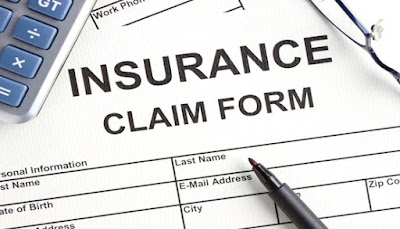Before anything else, we first have to understand what an insurance claim is. This way we can better appreciate the whole procedure and it simply becomes easy to go through because we already know what to do step by step, in relation to the whole process.
A claim is when you ask the insurance company to compensate you for damages you have sustained after a car accident, or when you ask the insurance company to represent you or intervene on your behalf when you are liable for damages.
You pay a lot of money for your car insurance, so it makes sense that if you are involved in an accident, you will want to make a claim. Depending on whether the accident is responsible, or not responsible, and the type of damage, your insurance company will be able to provide coverage based on the kind of car insurance coverage you have.
Claims can be paid from the comprehensive coverage, collision coverage, or any of the minimum car insurance requirement sections, such as liability. Claims may also be paid from multiple sections of your policy depending on the circumstances of your car crash.
If you are wondering whether your collision claims process will be more difficult to bear than the accident itself, the good news is that filing a claim is usually fairly simple. By following a systematic approach and carefully recording what has happened, you can gather all of the information you need. The following guidelines will help you ensure the process goes smoothly.
ON THE ACCIDENT SCENE
One of the best ways to speed up the entire claims process is to get off to the right start, and that begins at the accident scene itself. The more good information and evidence you can collect there, the better.
Here's what to get:
- Personal Data: Try to get basic personal information from everyone at the scene. That includes all other drivers, passengers, and bystanders. Get their names, phone numbers, and home and email addresses. Anything that will make it easier to find them later. If you have time, take some notes about what each witness saw and heard. Pass all of this information along to your claims adjuster, but be sure to keep copies for yourself.
- Insurance Information: This is particularly important. Make sure to exchange insurance information with the drivers of all vehicles involved in the accident. It's probably going to be the first thing your adjuster asks you for.
- Pictures: Take a bunch of photos of the accident scene. If you can get pictures before the vehicles are moved out of the way, great, but don't create a dangerous situation just to take them. Definitely take photos of all damages to your car, every other vehicle involved, and anything else. Take a few pictures of the accident location as well. A few different angles are always helpful. Take pictures of the parties involved and all witnesses, if you can. And, finally, take photos of each party's insurance card.
- Law Enforcement: Always call the police after an accident. They may or may not be able to respond, but it's always worth a try. When they arrive, make sure to get the officers' names. They will gather their own information and take interviews for their report, and instruct you on how to obtain a copy the report once it is written up. Hold onto whatever paperwork they give you and pass on copies to your adjuster.
I'm sure you've heard the saying, "most crimes are solved in the first 48 hours after the incident." That's because the crime scene remains intact and the details are still fresh in the minds of the witnesses. It's kind of like that with an auto accident. We're not talking about a crime here (I hope), but the idea still works. The sooner you contact your insurer, the easier it will be for them to make the inquiries they need to get the most accurate data. It's not a bad idea to call them from the scene of the accident, if possible.
Be Cooperative and Prompt
Most small accidents are relatively simple for your adjuster to handle. He or she has done them hundreds of times over. That doesn't mean that a claim can't be held up by some missing piece of evidence or information.
If your adjuster calls you and leaves a message to call him or her back, do it as soon as you can. Good communication between insurer and claimant is vital. Plus, it's hard to complain about slow processing if you're the one holding it up.
Be Honest
This rule seems obvious, but not everyone follows it. It's human to want to avoid pain, and admitting that you are at fault for your accident can be pretty painful. But if you are at fault, don't try to get out of it by lying. First of all, insurance adjusters have a lot of experience with accidents and fibbers.
They're really good about figuring out what actually happened and that can be pretty bad for you if you are less than forthcoming with the facts. Remember "Double Indemnity"? Insurance fraud is frowned upon and could cost you a lot more money than the premium increase you'll likely get by admitting fault.
And if you're looking for a speedy conclusion to the claims process, being dishonest will surely slow it down, and sometimes bring it to a crashing halt.

Comments
Post a Comment